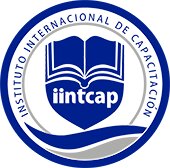Best Nonprofit & Charitable Organizations Lawyers in Santiago de los Caballeros
Share your needs with us, get contacted by law firms.
Free. Takes 2 min.
List of the best lawyers in Santiago de los Caballeros, Dominican Republic
About Nonprofit & Charitable Organizations Law in Santiago de los Caballeros, Dominican Republic
Nonprofit and charitable organizations in Santiago de los Caballeros play a vital role in the development of the community, providing education, healthcare, social support, and other essential services to those in need. These organizations are governed by a specific set of laws and regulations in the Dominican Republic, ensuring proper management, transparency, and accountability. The legal landscape ensures compliance with national standards, while also addressing organizational formation, governance, and the rights and responsibilities of nonprofit entities.
Why You May Need a Lawyer
Engaging a lawyer with expertise in nonprofit and charitable organizations can be crucial in various situations. Common scenarios include:
- Forming a new nonprofit or charitable organization and drafting foundational documents
- Registering your organization with the correct government authorities
- Understanding tax exemptions and other financial benefits available to nonprofits
- Ensuring compliance with national and local reporting requirements
- Negotiating or reviewing contracts with donors, partners, or government agencies
- Handling disputes within the board or with employees
- Modifying the legal status or purpose of the organization
- Dealing with issues of transparency or accusations of mismanagement
- Guidance on best practices for governance and accountability
- Advising on foreign donations or international collaborations
Local Laws Overview
In Santiago de los Caballeros, nonprofit and charitable organizations must comply with the broader legal framework of the Dominican Republic, principally guided by Law No. 122-05 Regulating and Promoting Nonprofit Associations. Key aspects of the law that are especially relevant include:
- The process for legal incorporation and registration of nonprofit entities with the Attorney General’s Office
- Obligations to maintain transparency, including submission of annual financial statements and activity reports
- Rules regarding governance, including mandatory bylaws, regular meetings, and proper record-keeping
- Eligibility and procedures for tax exemptions and benefits
- Regulation of the use of foreign funds and donations
- Adequate dissolution procedures if the organization ceases operations
- Requirements for the appointment and roles of board members and legal representatives
- Prohibitions against distributing profits among members
Nonprofits in Santiago de los Caballeros may also need to comply with specific municipal regulations, depending on their activity scope and location.
Frequently Asked Questions
What is the process to legally register a nonprofit organization in Santiago de los Caballeros?
Organizations must draft articles of incorporation and bylaws, hold a founding assembly, and submit an application to the Attorney General’s Office, including all necessary documentation for legal recognition.
Is my organization automatically tax-exempt?
No. After legal registration, organizations must apply for tax-exempt status with the Dirección General de Impuestos Internos (DGII) and meet specific requirements to qualify.
What must be included in the bylaws?
Bylaws must define the organization’s purpose, governance structure, rules for membership, roles of leadership, meeting procedures, and how assets will be handled in the event of dissolution.
How often are organizations required to report to authorities?
Most nonprofits must submit annual financial and activity reports to the Attorney General’s Office and the DGII to maintain their legal status and benefits.
Can foreigners establish a nonprofit in the Dominican Republic?
Yes, foreigners can be founders or members, but the organization must operate in accordance with Dominican law and have a Dominican-based legal address.
What limitations are there on the activities of a nonprofit?
Nonprofits must adhere to their stated mission and cannot distribute profits among members or engage in activities that are primarily for private gain.
Do board members have personal liability?
Board members generally do not have personal liability for organizational debts, unless there is evidence of fraud or gross mismanagement.
How can an organization receive donations from abroad?
Organizations must be compliant with local laws, maintain transparent records, and may need to report foreign donations depending on the size and source of the funds.
What are the consequences of failing to meet reporting obligations?
Failure to comply can result in suspension or loss of legal recognition, loss of tax benefits, and difficulty accessing grants or donations.
Can nonprofits partner with government agencies?
Yes, many nonprofits collaborate with governmental bodies to carry out public benefit projects, usually under formal agreements that require legal review.
Additional Resources
For more guidance or up-to-date information, the following resources are useful:
- Attorney General’s Office (Procuraduría General de la República Dominicana) - for registration and regulatory issues
- Dirección General de Impuestos Internos (DGII) - for tax-related matters and exemptions
- Ministry of Economy, Planning and Development (MEPyD) - for grants and project support
- Local government offices in Santiago de los Caballeros - for municipal requirements
- Dominican Federation of Nonprofit Organizations (FEDOP) - for network support and advocacy
- Local legal clinics and university law faculties - for free or low-cost legal consultations
Next Steps
If you need legal assistance with nonprofit or charitable organization matters in Santiago de los Caballeros, consider the following steps:
- Identify the area where you need support, such as registration, compliance, or governance
- Gather relevant documents, including your bylaws, articles of incorporation, and recent reports
- Reach out to a local lawyer specializing in nonprofit law, or consult resources at local universities or legal clinics
- Prepare a list of questions to ensure you address all your concerns during your consultation
- Stay informed about any changes in the law or municipal regulations that could affect your organization
Taking these steps can help ensure your nonprofit operates legally and effectively, allowing you to focus on fulfilling your mission and serving the community in Santiago de los Caballeros.
Lawzana helps you find the best lawyers and law firms in Santiago de los Caballeros through a curated and pre-screened list of qualified legal professionals. Our platform offers rankings and detailed profiles of attorneys and law firms, allowing you to compare based on practice areas, including Nonprofit & Charitable Organizations, experience, and client feedback.
Each profile includes a description of the firm's areas of practice, client reviews, team members and partners, year of establishment, spoken languages, office locations, contact information, social media presence, and any published articles or resources. Most firms on our platform speak English and are experienced in both local and international legal matters.
Get a quote from top-rated law firms in Santiago de los Caballeros, Dominican Republic — quickly, securely, and without unnecessary hassle.
Disclaimer:
The information provided on this page is for general informational purposes only and does not constitute legal advice. While we strive to ensure the accuracy and relevance of the content, legal information may change over time, and interpretations of the law can vary. You should always consult with a qualified legal professional for advice specific to your situation.
We disclaim all liability for actions taken or not taken based on the content of this page. If you believe any information is incorrect or outdated, please contact us, and we will review and update it where appropriate.















